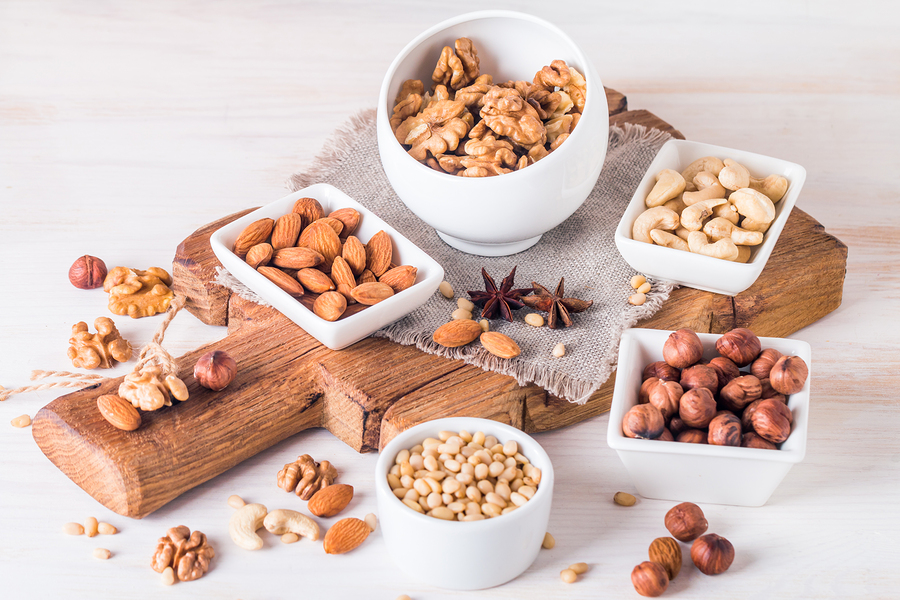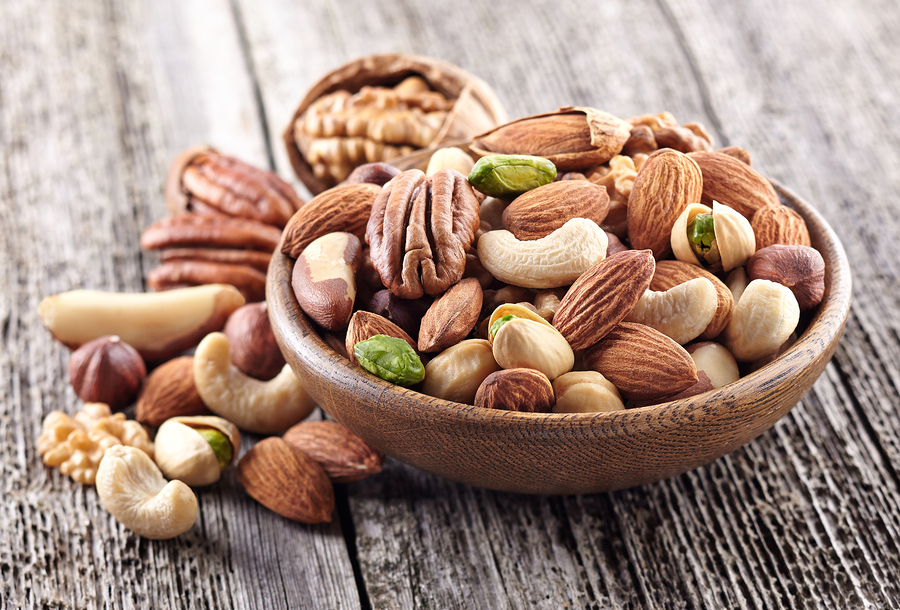- Make It Yourself Lavender Heart-Shaped Bath Bombs!
- 20 Things You Never Knew About “Down There”
- 12 Best Foods For Those Suffering From Arthritis Pain
- 12 Personal Hygiene Mistakes Almost Everyone Makes (Mom Never Told You About #4!)
- 15 Medicinal Plants And Herbs From The Cherokee People
- 12 Mind-Blowing Benefits Of Drinking Coconut Water During Pregnancy
- 12 Outstanding Winter Foods That Won’t Fatten You Up Like A Christmas Turkey
Proof That Nuts Have Unlimited Health Benefits

Photo credit: bigstock.com
There is a wide variety of nuts. Each has a different makeup, taste, and health benefit. In general, most nuts are good for you in more ways than one. The good news is that it does not take a large serving of nuts for you to reap the health benefits they have to offer. It only takes about 15 pecan halves or two dozen almonds each day to constitute a serving. The key is not in the amount, it is in the consistency. The benefits will be available for as long as you consume the nuts on a daily basis.
You may think you know what a nut is but you will be surprised to find out that there are as many different classes of nuts as there are types. Most nuts are considered a fruit. They start out as a pod that has both the seed and fruit of the plant. A botanical nut is what is referred to when the shell doesn’t open and the seed does not come out. Some examples of this are hazelnuts, acorns, and chestnuts.
Peanuts belong to the legume family, which includes beans and peas. A drupe is a fruit that contains one seed inside just as a cherry or peach does. Unlike those fruits, the seed is consumed rather than the outside of the fruit, such as walnuts, almonds, and pecans.
Nuts are nutritious
An ounce of nuts has under 200 calories, about 5 grams of protein, and 3 grams of fiber. Nuts are rich in many vitamins and minerals including vitamin E, phosphorous, magnesium, copper, selenium, and manganese. The carbohydrate values vary between 2 to 8 grams of digestible carbs per serving.
Nuts are rich in antioxidants
Antioxidants are the components that keep free radicals that naturally occur in our bodies under control. They are fine when they maintain a healthy level but too many can damage your cells and it puts you at risk of contracting serious diseases. Nuts also contain polyphenols which prevent oxidative stress through the neutralization of free radicals preventing them from harming your cells. There is a test that can gauge how much a food is able to fight the free radicals and it is called the ORAC. The study showed that walnuts had an ORAC that was larger than fish.
Continue to Page 2

Photo credit: bigstock.com
Nuts are an effective tool for weight loss programs
While they are not necessarily a low-calorie food, participants of a weight loss study found that those who ate nuts on a regular basis realized an average loss of 2 inches around their waist which was more than those who consumed olive oil. Pistachios are a great food for those trying to drop a few pounds. Also, people who included almonds in their daily regime lost almost three times more weight than those who did not eat almonds.
Nuts Reduce cholesterol and triglyceride levels
Pistachios have been proven to reduce triglycerides in those with diabetes and people who were overweight. The 12-week clinical showed that the obese people had a triglycerides level that was 33% lower than the other groups. Almonds and hazelnuts were proven to lower the LDL cholesterol as well as reduce the total cholesterol level and increase the good cholesterol levels (HDL). Other similar studies found that an ounce of peanuts, walnuts, and pine nuts combined together and consumed daily for six weeks lowered all cholesterol levels. The lowered all levels except the good levels in women who suffered from metabolic syndrome. An additional clinical showed that macadamia nuts were as effective in lowering cholesterol levels as following a low-fat diet.
Nuts Help people with metabolic syndrome and type 2 diabetes
When it comes to type 2 diabetes and metabolic syndrome, nuts have proven themselves to be a major benefit for those with either disease. They are a low carb food so they fit right into a low-glycemic diet. They don’t raise blood sugar levels and actually contribute to reducing them. A clinical study showed that those who ate 25 grams of pistachios two times per day enjoyed a 9 percent reduction in their fasting blood sugar. The group also found lower blood pressure levels and CRP, or the C-reactive protein, which is a precursor to heart problems.
Continue to Page 3

Photo credit: bigstock.com
Adding nuts to your diet can cut your chances of stroke and heart attack
With the way that many nuts are able to lower your blood pressure and cholesterol levels, you should add them to your diet daily if you want to reduce your chances of having a heart attack or a stroke. Those two vitals are what are responsible for cardiovascular issues.
Benefits Broken Down by Nuts
- Walnuts – These popular nuts are effective in preventing heart disease. They contain an abundance of omega-3 fatty acids and help the blood flow more smoothly in order to avoid heart issues.
- Pistachios – With their high level of fiber, pistachios help oversee the smooth transition of the foods you consume through your colon.
- Almonds – Almonds are rich in vitamin E, magnesium, and manganese. They are important in maintaining your brain health, help lower blood pressure levels, and reduce blood sugar readings by 30 percent after patients have eaten a meal.
- Cashews – The antioxidant properties of cashews are valuable in reducing the blood pressure levels in those suffering from metabolic syndrome.
- Brazil nuts – The compound that brazil nuts have in abundance is selenium. These nuts help with cancer, thyroid issues, autoimmune problems, AIDS, asthma and heart disease.
READ ALSO: 5 Facts You Need To Know About Raw Nuts Video
Nuts are very easy to find in every grocery store, bulk food stores, and health food stores. You can eat them plain as a snack so they are handy and ready to eat when you are hungry. Add slivered almonds to green beans or a salad, have a can of heart- healthy mixed nuts in your cupboard, or cover a cheese ball with chopped nuts of your choice to add a little something extra.
References:
































